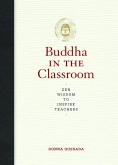
While working my way through a thick stack of homework papers recently, I came across one, written by a Chinese student who spoke of his hatred toward the Japanese. I’ve received other papers through the years, alluding to the very same grudge. This common resentment is because of the Japanese invasions into China during the 1930s.
I often wonder while reading, if they even know at whom they are angry, and whether the feeling is directed toward today’s generation of Japanese. I even wonder if it is a feeling at all. It is perhaps more like a cultural habit. Nonetheless, if the cynicism is directed toward today’s generation, then I wonder whether these young Japanese are even familiar with the history of WWII. If they’re like most young people, it’s just an anecdote in their history books.
They are a good three generations removed from the relevant, and “chargeable” generation. This generation is busy with the same personal concerns we’re all busy with, and worried about issues that affect us all equally, like the economy, or the environment. And in a more personal context, they’re worried about transferring to a good university, the problem they’re having with their girlfriend or boyfriend, and whether they’ve used too much data on their cell phones.
In this light, it is clearly pointless to be angry at these people.
So, then what about the older generation, those who were in their prime during WWII? The culprits. In a similar line of thought, my guess is that the average Japanese person back then, was waiting for news of the war, like the rest of the world…concerned most immediately, about the safety of their families…looking for assurance that life would continue in some semblance of normalcy…hoping that their village wouldn’t be crushed. They weren’t personally involved in acts of destruction, at all, and chances are, didn’t wish for it, either.
So, who should the culprit be? Perhaps the government, but that particular assemblage is now nonexistent.
The Chinese aren’t horrible for persisting in their anger toward the Japanese. If they are, then we all are equally horrible. We all do the same thing. The Buddhists call it ignorance. We condemn the Germans, as a whole, for the holocaust. But all it takes is remembrance of the many Germans who tried, themselves, to bring down Hitler, and the many others who took in Jews, at their own personal risk.
Ironically, it would be all too easy to direct the same bitterness toward the Chinese, due to their violent seizure of Tibet, but the ordinary Chinese people of today have not seized Tibet, and weren’t even around when the whole thing started, some 60 years ago, under Mao. They are getting along like the rest of us, doing the things the rest of us do everyday, and probably don’t know much about it, aside from what their Government, through heavy censure, has allowed them to know.
The point is, with deeper consideration, it becomes increasingly difficult to find a target, and to hold onto anger.









